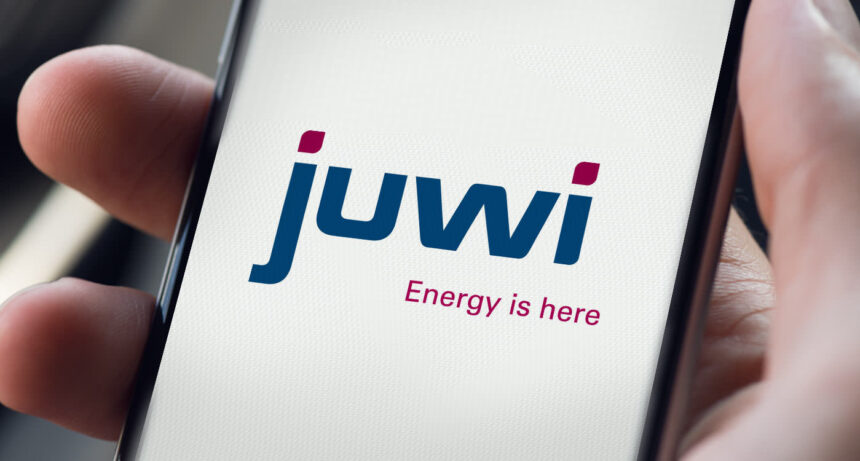Construction on juwi’s 1,000th wind turbine plant has commenced. The plant in Mohlis (Thuringia), Germany, was awarded to juwi by the country’s Federal Network Agency, in a tender process conducted last year.
The project marks an extraordinary milestone in the more than 22-year history of the manufacturer-independent project developer for wind and solar parks. With the construction of a recent four wind turbine project, juwi is one of the first German project developers to reach the mark of 1,000 wind turbines onshore. juwi has just started laying the foundations and the park is scheduled to be commissioned in late summer.
The commencement of construction also marks juwi’s successful arrival in the new Renewable Energy Sources Act (EEG) environment. The Amendment of the EEG in 2014 aims to continue steady deployment of renewable energy in Germany in a cost efficient manner by integrating renewable energy solutions more to the market.
juwi’s 1,000th wind turbine is a Vestas V136 turbine with a nominal output of 3.6 megawatts, a hub height of 149 meters and a rotor diameter of 136 meters. The total height is 217 metres. After commissioning, the four wind turbines will jointly generate around 50 million kilowatt hours of climate-friendly electricity. This corresponds to the annual average energy consumption of more than 16,000 households.
The anniversary plant impressively documents the expertise of the juwi group in the planning, construction and operation of wind turbines as well as the technological advancement of wind energy over the past 20 years. “In 1996, a 500-kilowatt-class wind turbine generated around one million kilowatt hours per year, and today we are creating around twelve times this much with the Mohlis plant. And the costs have fallen enormously, to now only about five cents per kilowatt hour,” says juwi executive, Michael Class. Up until now, juwi has completed 790 installations in Germany, with 210 installations abroad, including in France, Poland, the USA, Costa Rica and Uruguay.
In South Africa, juwi MD Greg Austin says that wind energy has excellent potential and will increasingly be used in a hybrid mix. “We were successful in the awarding and financial closing of the 140 MW Garob Wind Farm in Round 4 of REIPP.”
“There’s a very good complement between solar and wind in many parts of the country,
particularly in the Northern Cape and Karoo. On a smaller scale, it offers a way for farmers to become independent of Eskom and of upward price pressures. Globally on a larger scale for grid connected renewable generators, we are increasingly seeing technology neutral tenders, where wind and solar can freely compete. Currently, in many markets the tariffs for the two technology types is on par.”
“When we assess a hybrid power project, if there’s a reasonable to good wind and PV resource, we typically see that financially it makes sense to plan PV first, wind second and only then do we consider storage. In other words, it often makes sense given current storage pricing to combine PV with wind before adding storage.”
“South Africa has procured about 1,5GW of wind to date, and this time next year there will be about 2+GW of wind on the grid. It’s only scratching the surface of what’s possible. We could have 70GW or 80GW of wind in the next couple of decades. We’ve spoken about 150GW of renewables on the South African grid by 2050, 50% of that should be wind. There’s so much more we can do.”
Austin says that the implementation of more wind power in South Africa comes back to the IRP and government policy around the procurement of renewables.
In Germany, after the bidding rounds of 2018, juwi is one of the most successful project developers,having been awarded tenders of more than 230 megawatts for wind (130 MW) and solar parks (100 MW).
In addition, juwi was the first company to succeed in the tendering system with two projects in Saarland. The key to the success proved to be the extensive market analyses and the juwi-internal database, which contains not only the data from the Federal Network Agency’s register of facilities, but also many records on current approval procedures. Based on this, the company works with detailed yield simulations, which calculate, among other things, aggregate probabilities for certain bid levels and several follow-up rounds.
In the 2018 wind tenders, juwi secured 14 out of 15 tenders above the average value of each round. “Above all, we want to deliver the optimal bid in the bidding process that is optimal for us,” says Meinrad Wagenschwanz, Vice President Renewable Energies Germany. juwi will also be involved in new projects in the coming calls for tenders from the Federal Network Agency.







